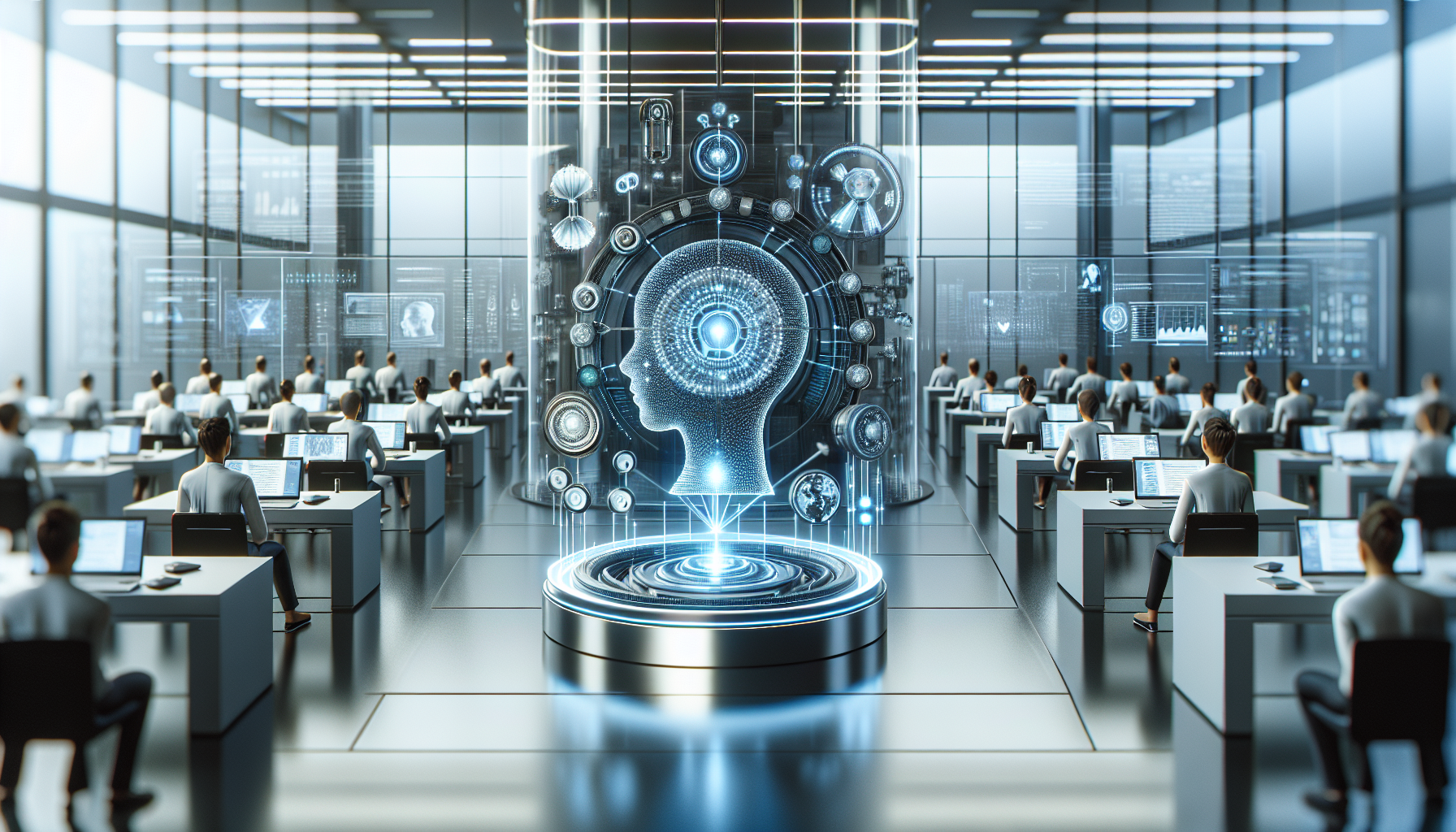
The Economic Impact of AI: Future Predictions for Growth and Displacement
April 14, 2025
Artificial Intelligence (AI) is not just a buzzword; it's a transformative force reshaping the economic landscape. As we stand on the brink of this AI-driven revolution, future predictions about its economic impact offer both thrilling possibilities and daunting challenges. Some argue that AI will be a catalyst for unprecedented economic growth, while others caution about the potential for significant job displacement. What does the future hold for economies around the world as AI technologies continue to evolve?
AI's potential to boost economic growth is immense. Imagine a world where routine tasks are automated, freeing up human capital to engage in more creative and complex endeavors. This shift could lead to a surge in productivity and innovation, driving economic expansion to levels previously thought unattainable. Businesses that embrace AI technologies are likely to outperform their competitors, leading to increased profits and market share. Companies across industries—be it healthcare, finance, or manufacturing—are already leveraging AI to streamline operations, offer personalized customer experiences, and make data-driven decisions.
The ripple effects of AI-induced economic growth will be widespread. As businesses grow, they will invest more in research and development, fueling further innovation and technological advancements. This cycle of growth and reinvestment could create new industries and economic opportunities that we can barely imagine today. Moreover, AI can play a pivotal role in addressing some of the world's most pressing challenges, such as climate change, by optimizing resource usage and reducing waste.
However, the rise of AI also raises important questions about the future of work. Automation is set to transform job markets, leading to the displacement of certain roles while creating demand for new skills and professions. The concern is not unfounded; history shows that technological revolutions often come with labor market disruptions. The key difference with AI is the speed and scale at which these changes might occur. Jobs that involve routine, predictable tasks are most at risk, and sectors heavily reliant on such jobs may face significant upheaval.
Yet, the narrative of AI as a job destroyer is only part of the story. While some roles may become obsolete, AI is likely to create new jobs that we cannot yet envision. Roles related to AI development, maintenance, and oversight will undoubtedly grow. Moreover, as AI takes over mundane tasks, humans can focus on aspects that machines cannot replicate—creativity, empathy, and strategic thinking. Education and retraining programs will be crucial in preparing the workforce for this new reality, equipping individuals with the skills needed to thrive in an AI-enhanced economy.
Policymakers, educators, and business leaders must collaborate to navigate this transition effectively. Proactive measures, such as investing in education systems that emphasize critical thinking and lifelong learning, can help mitigate the risks of displacement. Meanwhile, industries can foster innovation and adaptability by promoting a culture of continuous learning and flexibility.
To further ensure a balanced economic impact, it is essential to address the ethical and social implications of AI. As AI systems become more integrated into our lives, issues of transparency, bias, and accountability must be at the forefront of development and deployment strategies. Establishing robust ethical guidelines and regulatory frameworks will be vital in ensuring that the benefits of AI are equitably distributed and do not exacerbate existing inequalities.
Ultimately, the economic impact of AI will depend significantly on how societies choose to approach and manage this technological evolution. Will we harness its potential to create a more prosperous and equitable future, or will we allow it to widen the gap between the haves and the have-nots? The decisions made today will shape the world of tomorrow.
As we ponder these questions, one thing is clear: the path forward will require a collective effort. By embracing AI responsibly and strategically, we can unlock its full potential while safeguarding against its risks. In this intricate dance between innovation and ethics, what steps are we willing to take to ensure a future where AI serves as a tool for growth and empowerment rather than displacement and division?


